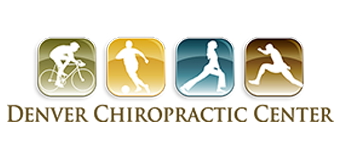This week’s 1-Page Health Newsletter
Dr. Stripling’s popular video series is back! This week he shows you the proper patterning for the bodyweight squat. I’ve said it before and I’ll say it again; if you lack the mobility to do a bodyweight squat, your back is going to get hurt. It’s never too late to start. Check out the video link below.
Speaking again about my colleague Dr. Stripling, one of Dr. Stripling’s sponsored athletes, Kyle Pietari, finished first at the Grasslands 50 Mile (!) Ultramarathon this past weekend in Decatur, Texas. After taking the lead at Mile 2, Kyle maintained the top position and won the race in a blistering 7:27. Congrats to Kyle and best of luck this season!
Here is this week’s 1-page health news…
Preventing ankle sprains.
5 minutes of standing on a stability pad 5 times weekly reduced incidence of ankle sprains (and presumably other lower leg injuries) by 77%. McHugh et al, American Journal of Sports Medicine 2007;35: 1289-94 (39). (Just go amazon and search for “Harbinger Balance Pad” to get yours for around $20. If you have an ankle sprain, call us! We get great results with Active Release!)
Mental Attitude: Happiness and Age?
Psychological well-being is linked to important life outcomes such as career success, relationship satisfaction, and health. Well-being tends to increase with age; however, when you were born can have a lasting impact on your overall sense of well-being. For example, people who grew up during the Great Depression started off with lower levels of overall well-being than their children who grew up during more prosperous times. As they aged, their overall sense of well-being increased but stayed below the following generation’s levels at similar ages. Based on this data, researchers warn that people growing up in today’s more challenging economic environment may experience similar long-lasting effects to their overall sense of well-being.
Psychological Science, February 2013
Health Alert: Alcohol On The Brain?
Excessive alcohol use accounts for 4% of the global burden of disease, and binge drinking is a growing health issue. Functional signs of brain damage from alcohol misuse in young people include deficits in visual learning, memory, and executive functions. Structural signs of alcohol misuse in young people include shrinking of the brain and significant changes to white matter tracts.
Cortex, February 2013
Diet: Obesity Causes Vitamin D Deficiency?
Researchers have observed a 4.2% drop in Vitamin D levels for each 10% increase in BMI. Vitamin D is important because it aids bone health and decreases risk of cancer, diabetes, high blood pressure, heart attack, and early death.
PLoS Medicine, February 2013
Exercise: Reduce Risk of Dementia.
People who exercise and have higher physical fitness levels during middle age have a significantly reduced risk of developing dementia later in life.
Annals of Internal Medicine, February 2013
Chiropractic: Osteoarthritis and Injuries From Early Adulthood.
Young adults who had injuries to the knee and/or hip were 3x-5x as likely to suffer from osteoarthritis in the knee and/or hip later in life than young adults who suffered no such injuries. This is why it’s so important to get regular care to keep those hips, knees, and spines moving!)
Annals of Internal Medicine, September 2000
Video Link. Click here to see how the squat can build a better you. Really! (If you have pre-existing back problems, please come to the office so we can go through this with you so you don’t get hurt).
If there’s someone that you know with back pain, neck pain or headaches- we can help. Call us at 303.300.0424. And don’t forget, we have the BEST massage therapist in the city here at Denver Chiropractic Center, Erin Young. Treat yourself to an hour, or even two. Call us to get onto Erin’s schedule.
Dr. Glenn Hyman, Dr. Jeff Stripling, Office Manager Natalie, & Erin Young LMT
Denver Chiropractic Center
